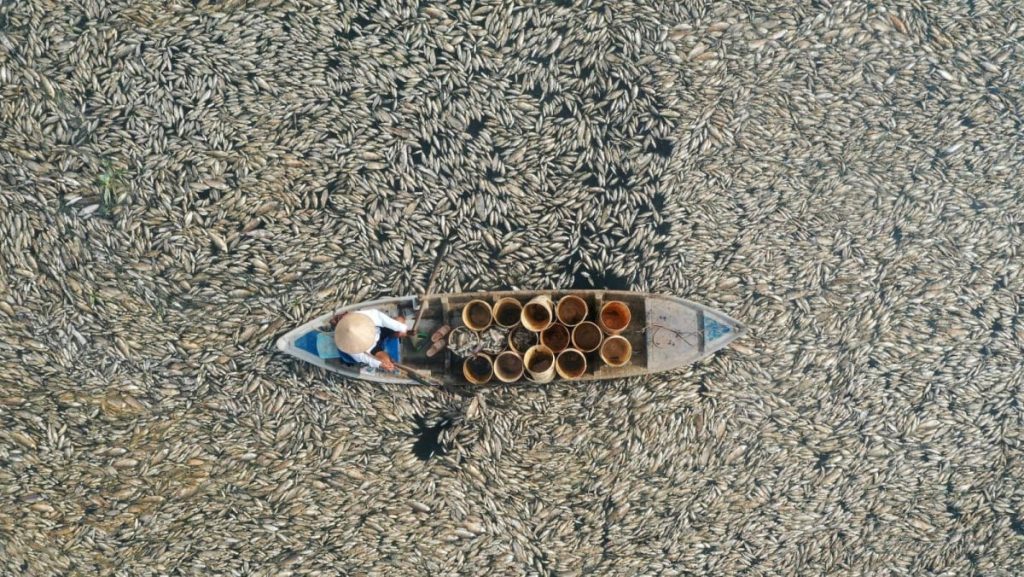ectricity consumption has spiked due to the searing temperatures – Vietnam is in the grip of a severe heatwave. In this case, the soaring temperatures are believed to have caused a drop in oxygen levels in the reservoir, leading to the mass death of fish.
The reservoir, located in Bien Hoa city, is a crucial source of fish for local communities, many of whom rely on fishing as a primary source of income. The mass die-off of fish has had a devastating impact on these communities, not only in terms of economic loss but also in terms of food security. The loss of fish from the reservoir means that many families will struggle to put food on the table, exacerbating an already precarious situation caused by the ongoing heatwave.
Local authorities in Dong Nai province have been quick to point fingers at the management of the reservoir, suggesting that negligence and poor management practices may have contributed to the fish die-off. Reports indicate that the reservoir may have been overstocked with fish, leading to overcrowding and a rapid depletion of oxygen levels as the temperature rose. Additionally, there are concerns about the lack of monitoring and maintenance of the reservoir, which may have exacerbated the situation.
The heatwave in Vietnam is part of a broader trend of extreme weather events that are becoming more frequent and severe due to climate change. The impact of these events is disproportionately felt by vulnerable communities like those in Dong Nai province, who rely on natural resources like fish for their livelihoods. As such, addressing the root causes of these events, including reducing greenhouse gas emissions and strengthening resilience to climate change, is crucial to protecting these communities and their way of life.
In response to the fish die-off, local authorities have launched an investigation into the incident and pledged to improve the management of the reservoir to prevent similar events in the future. This includes plans to reduce the fish population in the reservoir, improve monitoring and maintenance practices, and take steps to protect the ecosystem of the lake. However, it is clear that more needs to be done to address the underlying causes of the fish die-off, including addressing the broader impacts of climate change on the region.
The mass fish die-off in Dong Nai province is a stark reminder of the devastating consequences of climate change on vulnerable communities and ecosystems. It highlights the urgent need for action to address the root causes of these events and to build resilience in the face of a changing climate. As Vietnam and other countries in Southeast Asia continue to grapple with the impacts of extreme weather events, it is essential that governments, communities, and individuals work together to reduce greenhouse gas emissions, strengthen adaptation measures, and protect the natural resources that are vital to the livelihoods of millions of people.














